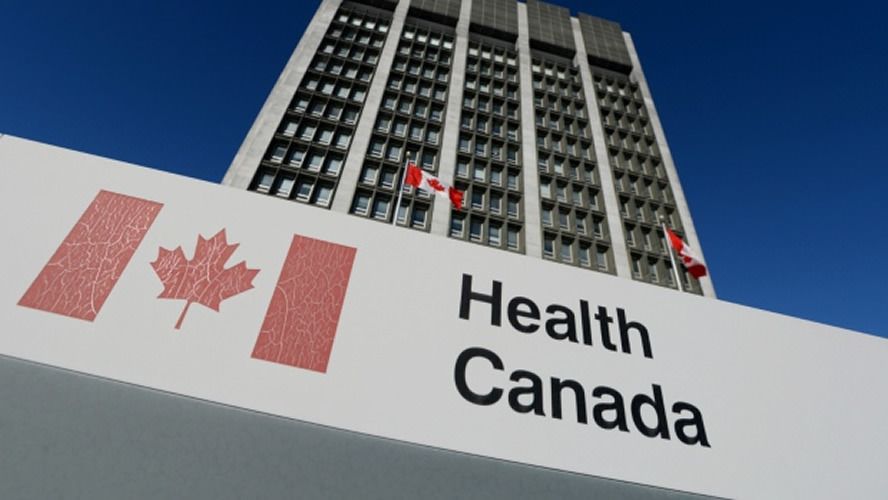Organa Brands
Headquarters: Denver
Year Founded: 2010
About: Organa Brands develops and manufactures vape pens, vape oils and vape oil cartridges, extracts and infused products.
States: Arizona, California, Colorado, Connecticut, Maine, Massachusetts, Nevada, New Mexico, Oregon and Vermont. Also in Canada and Jamaica.
Employees: 250
2017 Revenue: Does not disclose
Business Structure: Private company
Recipe for Success
The executives at Organa Brands relied on a few key tactics to take their company into a dozen states and two countries:
- Focusing on a single product – in the company’s case, oil – that is easily scalable and can be used in multiple ways to break into markets.
- Establishing distribution networks to tap into new markets versus trying to replicate their first hit product, a vape pen.
- Diversifying products and brands to provide multiple options with which to break into new markets.
- Thoroughly researching markets and vetting potential partners.
Oil: It’s what powers Organa Brands’ national and international expansion strategy. Launched as Organa Labs in 2010, the privately held Denver company started with its simple and easy-to-mass produce OpenVape pen and oils for use with the vaporizers. Since then, Organa Brands has added four more oil-based brands:
- Bakked, a line of extracts.
- Magic Buzz, an infused beverage.
- District Edibles, infused gummies.
- Pressies, tablets infused with cannabis oils and nutraceuticals, including gingko and melatonin.
Organa Brands plans to roll out five more brands in the near future.
“We look to control market share with oil. Oil can be sliced and diced hundreds of different ways,” Organa Brands President Chris Driessen said. “That allows our sales and marketing teams to really develop the brand, distribute the brand and package it up differently to appeal to different groups of people.”
Pen Paves the Path
The company’s products are carried in more than 1,500 stores in 10 states where it has what it describes as lab facilities. Depending on the state, the staffs either grow their own cannabis or buy it wholesale, then put it through extraction and manufacture the products they want to make.
The business in part attributes its successful multistate expansion to having a large distribution network that Driessen said allows the company to rapidly deploy many different products across multiple markets.
“It allows the scope of our offering to be bigger than most, if not all, (competitors),” he said.
Credit for the distribution network, Driessen said, goes to the company’s vape pen, which led Organa Brands’ charge into many of its present markets.
“We had this mass-produced, scaled, well-marketed and well-branded vaporizing pen that took the market by storm. We knew we had a hit on our hands,” Driessen recalled. But rather than attempt to make another great product, the company focused on distribution.
“You can have a great product, but if you don’t have distribution, it won’t go anywhere,” Driessen said. “We built our distribution network at a time when other people were trying to develop products. And the thought was: If you have the distribution network in place, you can plug an infinite number of products into that network.”
Organa Brands’ distribution market continues to grow, and the company is working on getting into six other markets, including Illinois, Maryland and Washington state, Driessen said.
Research Is Key
While the company’s vape pens and oils are their best-selling products and the items they lead with in most markets, having a diverse array of products helps the company sustain its presence in new markets.
Organa Brands decides what types of products it wants to develop based on research. The company has a “very close relationship” with BDS Analytics, a cannabis-focused data firm also based in Colorado, that allows Organa Brands to monitor market share, average sales price, units per share, transactions for its brands and rival brands.
“We monitor categories that we’re not even in yet,” Driessen said.
In fact, research is how the infused tablet Pressies was born this year.
The company’s analyses revealed that only a handful of companies in Colorado were making pressed tablets, which were generating $1.2 million of revenue per month. Organa Brands figured it could make better tablets for less cost – and given the small number of pill competitors, it could win what Driessen said was “an outsized portion of the market share.”
The company began manufacturing its first tablets this summer, and within six weeks of launch were in 150 Colorado stores with plans to break into California and Oregon.
Driessen noted that 15% of those stores that picked up Pressies were completely new accounts for Organa Brands, giving the company new outlets to sell its oils, extracts and other products.
The Business Model
Another key aspect of the company is its model.
Organa Brands holds everything of value that is not cannabis – such as intellectual property, distribution agreements, real estate and equipment – allowing it to function like any other company because it’s not a plant-touching business. That company then licenses to partners with state-legal extraction labs to make its products, including extracts, infused beverages, gummies and tablets.
“A good analogy is Procter & Gamble,” Driessen explained. “P&G is the parent, but the stars of the show are the brands.”
Colorado is where the company’s product research and development happen, as well as where standards of procedure and other important company guidelines are drafted.
For production, Organa Brands partners with marijuana business license holders in states where it wants to do business. When deciding on a partner, Driessen said, Organa Brands seeks “money, morals and marijuana.” In other words: Does the potential partner have enough capital to scale, the morals to be compliant and enough raw cannabis for the quantity of products the company wants to produce?
To help new local partners learn the company’s processes, the firm deploys a “travel team” from its Colorado headquarters that comes in from sales, marketing, distribution, logistics, production, research and product development.
“We are able to deploy rapidly because we don’t have to hire a chemist and other key personnel in every market,” Driessen said. “We have them in Colorado, and their expertise is what gets licensed out.”
Know Your Markets
Organa Brands decides which markets to pursue after extensive research. The business evaluates the number of potential patients and consumers, the competition that might already be there, what sells and what doesn’t, as well as market needs that aren’t being satisfied. Organa Brands also sends executives and other team members into the market to explore real estate possibilities and interview potential executives and other staff.
“Being data driven, we always do heavy market analyses before we decide to go into a market to understand what’s the ROI, what products can we bring to market, what’s the demographic, what are the regs,” Driessen said.
“You need to know what’s unique about each state. Different brands resonate to different degrees by state,” Driessen said. For example, Organa Brands has found that its higher-end Craft Reserve Distillate cartridges and Reserve Pure Oil Cartridges – sold under the OpenVape brand – are popular in markets such as Northern California and Oregon. However, another product, Ish, a big-batch, flavored distillate that tastes like vanilla cake or blueberry, doesn’t sell well in the Pacific Northwest, but it does well in Colorado and other Southwestern states.
While Organa Brands executives would ideally like the company’s products to be in all legal cannabis markets, they fear that doing this would spread the company too thin. Consequently, the company has chosen, for now, to stay out of small markets such as Alaska, Hawaii and New Hampshire.
“You have to be cognizant of the time, talent and treasure you’re going to put in versus the opportunity and expected return,” Driessen said.
Consider Alaska. While it has an adult-use program, transporting product across the vast state is expensive.
“We really shine when we can sell to everybody on an open, wholesale scale,” Driessen said. “In Alaska, you can, but you might need to take a bush plane to some places; that makes the cost model nonsensical to us.”
Organa Brands also stayed out of Illinois and New York because of what it considered excessive regulations, high costs and too few patients. “One day, both those places will be amazing markets. But the way they are set up right now, you are set up to lose,” Driessen said.





